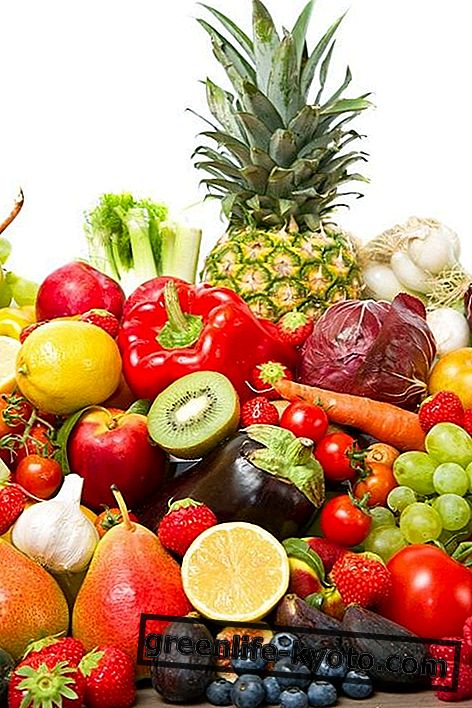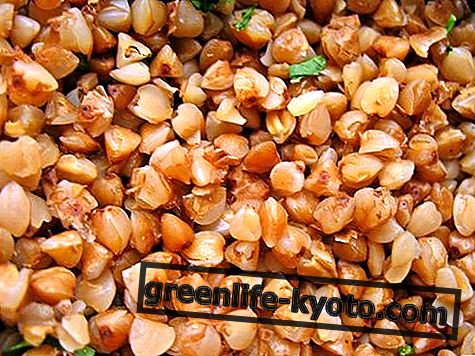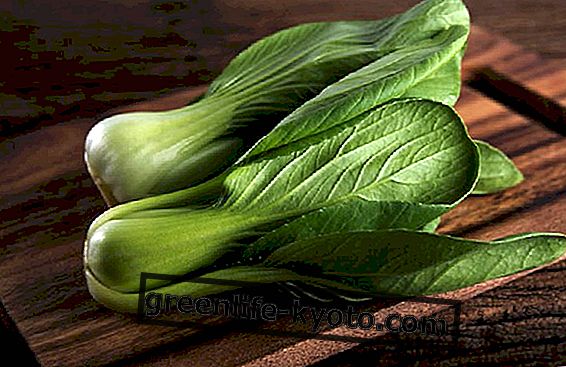
I again refer to a great axiom enunciated by Ayurvedic Medicine, according to which 'every man is what he eats'.
To get a more truthful and complete picture of the situation, I will add a little word: "Every man is also what he eats", it seems to me more correct!
That food is food for the body and the mind is by now established. According to Ayurvedic medicine - and all those behavioral disciplines that arise from Chinese medicine - food would also change our character, causing us to be more / less Yin or more / less Yang depending on the energy contained in the food we have chosen.
It is equally true to say that 'the first prevention is done at the table' and this applies to all diseases, not only those related to the heart.
The key to being able to enter easily into the world of prevention, or self-care in the event that the pathology has already manifested itself, is always that of CONSCIOUSNESS.
Diet does not necessarily mean prohibition and sacrifice, but awareness and a right choice with respect to what is introduced daily into oneself even through food.
From food we derive the energy necessary for the functioning of the body (body and mind) and for the regeneration of our cells.
The fundamental nutrients to be introduced daily into the diet are the following:
- proteins, carbohydrates, fats, vitamins, minerals, fibers, water.
Limit animal fats
One of the fundamental rules, in order to prevent or mitigate the symptoms of a cardiovascular disease, is to limit animal derived fats.
We know that saturated fats produce a rise in cholesterol and blood pressure, and vice versa.
Therefore, it is advisable to prefer unsaturated fats to saturated fats, for example vegetable oils.
The introduction of significant amounts of carbohydrates, especially in the form of refined sugar, contributes to the development of obesity (therefore, of a sedentary lifestyle, of laziness, with serious consequences on the cardiovascular system).
Therefore, carbohydrates in the form of starch rather than sugars are preferred. In this sense, the Mediterranean diet offers a 'greedy' variety of healthy products.
Eat fish
Habitual consumption of fish (at least three times a week) has a protective effect on cardiovascular risk .
In fact, it is a food rich in a particular unsaturated fat, OMEGA 3, which hinders the development of atherosclerosis, as it keeps cholesterol and triglycerides low, and prevents platelet aggregation around cholesterol plaques, so that these do not obstruct the passage of blood in the vessels.
Many studies have shown that populations that feed mainly on fish - for example, Eskimos - do not know about cardiovascular diseases.
Particularly healthy is the blue fish, very rich in omega 3: mackerel, alice, sardine, herring, tuna, swordfish, are rich in protein but, compared to beef, have the great advantage of containing the unsaturated fats, useful for our well-being.
Avoid milk and derivatives
Cheese and dairy products should be limited, as they are very rich in cholesterol.
Fresh cheeses are preferable, such as ricotta, mozzarella, stracchino, milk flakes, poor in salt.
Compared to milk and cheese, yogurt is more digestible, lipids have not been altered by processing, and high acidity favors the development of acidophilic intestinal flora that hinders putrefactive phenomena.
Consume cereals
Cereals that are the basis of the Mediterranean diet (wheat, corn, rice, rye, millet, barley, oats, spelled), especially if they are whole wheat, have no contraindications in the cardiovascular field.
They are foods rich in starch capable of ensuring the supply of calories necessary to our body's requests. In addition, they have the great advantage of satisfying the palate and the stomach. Greater attention must be paid to condiments that can be changed at will taking into account the basic rules.
Fruit and vegetables in abundance
Fruits and vegetables can be consumed at will, without particular restrictions. Obviously, the rule dictated by common sense always applies.
Both for fruit and vegetables, it is a good habit to consume it in great variety, preferring the seasonal variety. Vegetables play a dual role in the food ration: they ensure an alternation of flavors and colors, with a high content of vitamins and mineral salts; they also give a sense of satiety without affecting the caloric intake. In the case of fruit, it is possible to make tasty juices and smoothies, without altering their beneficial characteristics.
Fruit consumption is to be preferred between meals, such as snacks or snacks that reduce hunger. At breakfast it provides the right amount of vitamins, trace elements and water, which are essential for getting the day off to a good start. It would be good to avoid consuming it after meals, as it slows down the digestive process. But this is not a rule that must necessarily be followed. Every person has his particular needs and characteristics which he must always take into account.
Regarding the cooking of vegetables which, however, is always to be preferred fresh and raw, rapid blanching does not disperse large amounts of mineral salts and mucilage in the water.
A practical stratagem can be that of boiling pasta or rice in the water previously used for vegetables.
Introduce legumes instead of meat
Legumes (beans, peas, lentils, chickpeas, broad beans) are recommended to replace meat, thanks to their richness in vegetable proteins and low fat content.
A combination dish of cereals (pasta or rice) and the right amount of pulses can be the best choice for those who, not having much time for lunch, do not want to give up the pleasure of food.
One of the typical characteristics of legumes is precisely that of 'filling your stomach, and therefore ensuring a pleasant feeling of satiety in a fairly short time.
Wine in small quantities
Various dietetic schools of thought have been used for the consumption of wine per meal.
Abusing alcohol can be very risky for those suffering from cardiovascular diseases, and it is no coincidence that one of the first rules to prevent them is to limit their consumption.
Recent studies have shown that wine and alcoholic beverages, obviously in limited quantities, can reduce the risk of heart attack and stroke.
These qualities come from a chemical substance, resveratrol, which is also present in fruit, vegetables and tea, which has the power to make the blood more fluid and increase cholesterol Hdl, inhibiting the formation of thrombus.
But beware: an excess of alcohol increases the pressure and can irreparably damage the heart and liver.
Therefore, it is advisable to drink no more than three glasses of wine a day for men, and two for women, taking into account however, for the purpose of a slimming diet, the additional calorie intake introduced with this drink.
Salt enough
A lot has been said and written about salt too, perhaps too much, confusing the ideas of anyone interested in dietetics, sometimes touching extreme and paradoxical positions.
Surely it is important to limit their consumption in consideration of the fact that modern food already contains high doses in itself. Just think of the 'hidden' salt in ready-to-eat foods: nuts, bread, cheeses, canned foods, in oil.
As for the consumption of salt, it is necessary to make a distinction between the various cardiac pathologies. In the case of hypertension, for example, it will be essential to reduce the consumption of salt to a minimum, unlike the opposite pathology, hypotension, in which it can be taken in slightly larger doses.
But, in principle, all heart-related diseases involve moderate use of the notorious sodium chloride.
Since the cardiac patient (especially in severe conditions) is subjected to daily restrictions, depriving him of even the taste of food would represent further frustration for him.
Here, flavoring the dishes with herbs and spices of your choice can represent a fair compromise between health and pleasure.
On the other hand, those who look excessively for salt through food obviously cannot find it in everyday life. It is therefore a compensatory process to which the person uses to recover, albeit illusively, that indispensable 'salt of life' that is lacking.
Promote good digestion
IN BRIEF, whatever the illness, or the symptom, that has affected the heart, the purpose of the dietary treatment is always to REDUCE THE WORK OF THE HEART TO THE MAXIMUM, while providing the body with the nutrients it needs.
In general, the basic characteristics on which to focus attention in the choice of foods suitable for the heart disease are their sodium content and their DIGIBILITY.
Digestion is not a small job! During the digestive process a considerable amount of blood flows to the digestive tract, the greater the richer intake of food, and the slower and more laborious digestion is. Every shift in blood mass and, generally, any increase in circulation weighs on the heart. So the more you eat, the more your heart is forced to work.
The meals, therefore, must be not very abundant and as a practical reference it is possible to trust the principle according to which one should get up from the table still with a light languor, and not with a feeling of heaviness.
It is preferable to fractionate the daily ration into five meals, so that the stomach, and therefore the heart, is subjected to discreet work, without sudden overloads. And it would be healthy to entrust the digestion to a walk outdoors, even a few minutes, immediately after eating.
Another little rule to be kept in mind: too large foods are more difficult to digest, which is why it would be good to avoid them, especially in the evening.
The swollen stomach is, in fact, a mechanical obstacle that limits the movements of the diaphragm, the muscle responsible for breathing.
As a last rule, but certainly not in order of importance, I include that of COLOR.
We have already talked about the flavor, it would be interesting to be able to dedicate space to touch, to hearing, but I would risk to dwell at all costs.
It is enough to consider that every food, not only has its own particular taste, a perfume, a consistency that can be manipulated, but also its particular sound. It is so therapeutic 'sbranarÈ an apple and listen to that "crack" of it, especially when you are angry with someone we wish was that apple!
It is well established that the eye, even in the food sector, wants its part!
Eating monochromatic foods, which usually correspond to little 'vital flavor' weakens the immune system, like breathing polluted air, or having to endure unpleasant sounds.
Our sense organs allow us, constantly, mostly without our realizing it, to let the world enter into us.
Not only through the mouth, does food become part of our life; not being able to eat with the hands - as, for example, the Indians do - the eyes allow us to 'enjoy' that vision and to appropriate it sensorially. through this first non-verbal communication, our body prepares to accept that subject, in part unknown.
Furnishing your dish as if it were the playroom, with colored vegetables, well cut and arranged with love, means starting to take care of yourself, without delegating your health to others.
Getting lost in the intense color of raspberries, strawberries or cherries (chance blood colors!), Intoxicating with the scent of a tangerine, a slice of melon, orange means to bring in that energetic magnificence of which instinctively we trust.













